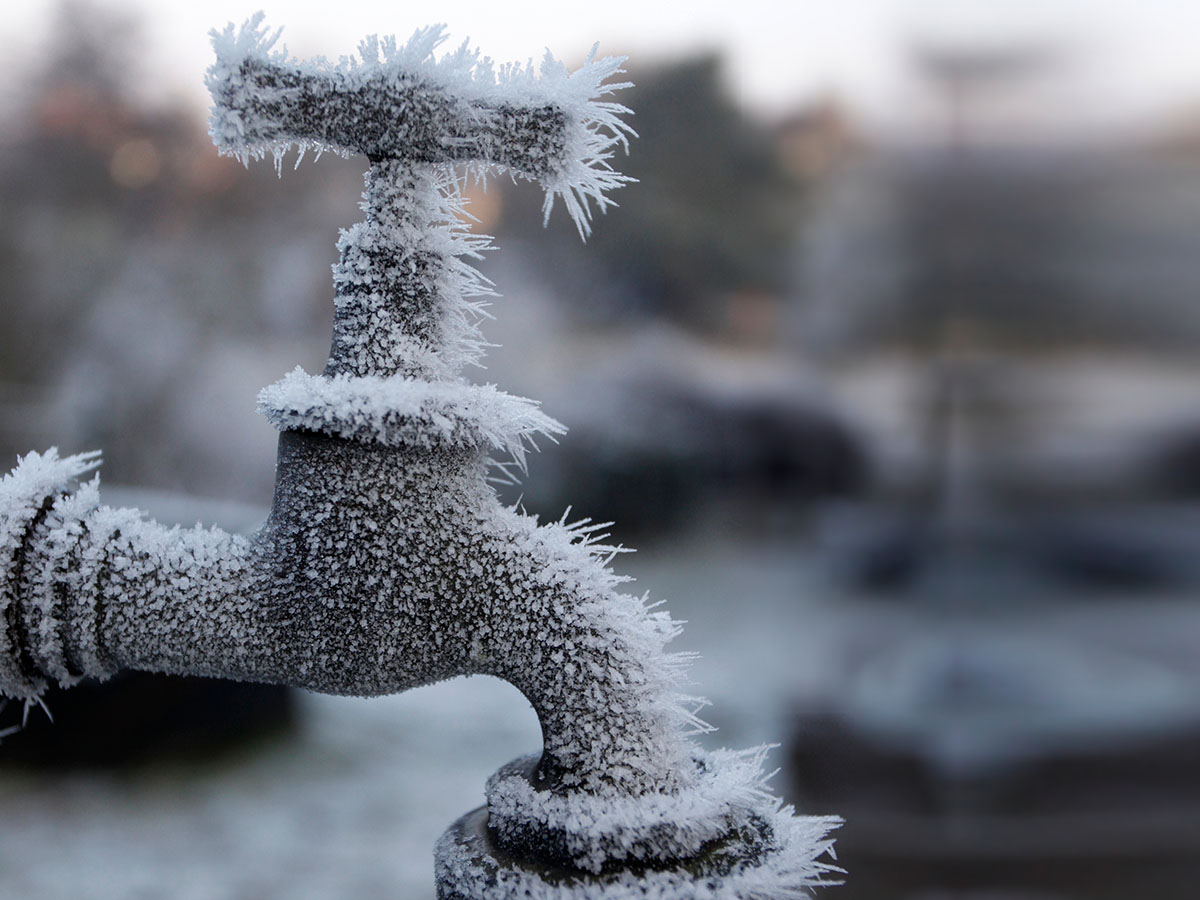Prevent Frozen Pipes in Winter: Expert Advice
Prevent Frozen Pipes in Winter: Expert Advice
Blog Article
Right here in the next paragraphs yow will discover a bunch of reliable additional info involving How To Avoid Freezing Pipes.

Cold weather can damage your plumbing, specifically by freezing pipelines. Below's just how to stop it from occurring and what to do if it does.
Introduction
As temperatures decline, the danger of icy pipelines increases, possibly resulting in pricey repair work and water damage. Comprehending exactly how to avoid frozen pipes is vital for home owners in cool environments.
Recognizing Icy Pipes
What causes pipelines to freeze?
Pipelines ice up when revealed to temperatures below 32 ° F (0 ° C) for prolonged periods. As water inside the pipes ices up, it broadens, putting pressure on the pipe walls and possibly creating them to rupture.
Risks and problems
Frozen pipes can bring about water disturbances, residential property damages, and costly repair work. Ruptured pipelines can flooding homes and cause substantial architectural damage.
Indications of Frozen Water Lines
Recognizing frozen pipes early can avoid them from breaking.
Just how to recognize icy pipes
Look for decreased water flow from faucets, unusual smells or sounds from pipelines, and noticeable frost on subjected pipes.
Prevention Tips
Insulating vulnerable pipelines
Cover pipes in insulation sleeves or use heat tape to protect them from freezing temperature levels. Concentrate on pipelines in unheated or external areas of the home.
Home heating techniques
Keep interior areas adequately heated up, particularly areas with plumbing. Open cupboard doors to enable cozy air to flow around pipes under sinks.
Securing Exterior Pipes
Yard hose pipes and exterior taps
Disconnect and drain yard hose pipes prior to winter season. Mount frost-proof faucets or cover outside taps with protected caps.
What to Do If Your Pipelines Freeze
Immediate actions to take
If you think icy pipes, keep taps open to alleviate stress as the ice thaws. Make use of a hairdryer or towels taken in warm water to thaw pipelines gradually.
Long-Term Solutions
Architectural modifications
Think about rerouting pipes away from exterior wall surfaces or unheated locations. Add extra insulation to attic rooms, cellars, and crawl spaces.
Upgrading insulation
Invest in top quality insulation for pipelines, attic rooms, and walls. Correct insulation assists preserve constant temperatures and decreases the danger of frozen pipelines.
Verdict
Avoiding frozen pipelines calls for aggressive procedures and fast feedbacks. By recognizing the reasons, signs, and safety nets, property owners can safeguard their plumbing during winter.
6 Proven Ways to Prevent Frozen Pipes and Protect Your Home
Disconnect and Drain Garden Hoses
Before winter arrives, start by disconnecting your garden hoses and draining any remaining water. Close the shut-off valves that supply outdoor hose bibs and leave the outdoor faucet open to allow any residual water to drain. For extra protection, consider using faucet covers throughout the colder months. It’s also important to drain water from any sprinkler supply lines following the manufacturer’s directions.
Insulate Exposed Pipes
Insulating your pipes is an effective way to prevent freezing. Pipe insulation is readily available at home improvement stores and is relatively inexpensive. Pay close attention to pipes in unheated areas such as the attic, basement, crawl spaces, or garage. Apply foam insulation generously to create a buffer against the cold. You can also wrap your pipes in heat tape or thermostat-controlled heat cables for added warmth.
Seal Air Leaks
Inspect your home for any cracks or openings that could let in cold air. Seal any holes around the piping in interior or exterior walls, as well as the sill plates where your home rests on its foundation. Additionally, make sure to keep your garage door closed unless you’re entering or exiting. Leaving it open creates a significant air leak that can lead to frozen pipes.
Allow Warm Air Circulation
During cold snaps, it’s essential to allow warm air to circulate evenly throughout your home. Leave interior doors ajar to promote better airflow. Open kitchen and bathroom cabinets to help distribute heat consistently around the rooms. If you have small children or pets, be sure to remove any household chemicals or potentially harmful cleaners from open cabinets for safety.
Let Faucets Drip
A small trickle of water can make a big difference in preventing ice formation inside your pipes. When temperatures drop significantly, start a drip of water from all faucets served by exposed pipes. This continuous flow helps prevent the water from freezing. Additionally, running a few faucets slightly can relieve pressure inside the pipes, reducing the chances of a rupture if the water inside does freeze.
https://choateshvac.com/6-proven-ways-to-prevent-frozen-pipes-and-protect-your-home/

I'm just very involved in How to Prevent Your Pipes From Freezing and I hope you enjoyed my page. Are you aware of another individual who is in to Helpful Tips to Prevent Frozen Pipes this Winter? Do not hesitate to share it. Thank you for being here. Please come by our blog back soon.
Call Today Report this page